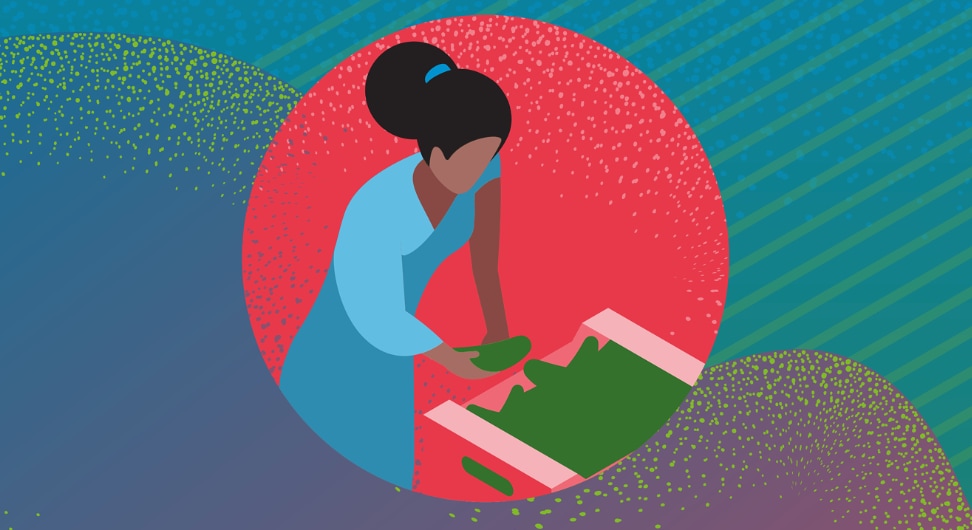Innovations Enabling Smallholder Farmers to Prosper

A rising global population. The increasingly unpredictable climate. Lack of access to new agricultural technologies. These are just a few challenges smallholder farmers face every day, and they need innovation to improve the diversity and bounty of our global food system.
There isn’t a single solution to alleviate these complex problems. As Bayer seeks for ways to assist smallholders – whether through breeding innovation, better crop protection products or partnerships, like the one we have with Better Life Farming – we know farmers are seeking numerous innovations that will enable them to prosper. And we’re helping deliver.
Here are three of those innovations.
1. Bolstering Crop Resilience
Crop loss can conjure images of pest and weather challenges, all of which affect farms around the globe differently – but field challenges are just one piece of the puzzle. Smallholders also need innovations to minimize food loss in transport.

Innovation Example: Cucumber Hybrids
- It can take 5-7 days for cucumbers to reach consumers, sometimes traveling over 250 miles a day.
- In countries like India, where heat can degrade crops, early maturity and long shelf life are imperative as farmers race against time to get their product to market.
- Our two Seminis cucumber hybrids, Malini and SV7298, are offering a perfect solution. Thanks to breeding innovation, these high-yielding hybrid cucumbers mature early and offer an extended shelf life of 10-12 days, helping farmers get produce to market earlier and minimize post-harvest losses. In addition, their high fruit uniformity pleases consumers and allows growers to sell their crops at a higher price.
2. Planet-Pleasing Precision
Droughts and weather variability are also factors in crop losses. Thankfully, irrigation innovations can help smallholder operations stabilize – while both pleasing our planet with saved resources and relieving global food security with increased yields.

Innovation Example: Sustainable Drip Irrigation
- Reliable access to water and irrigation leads to significant increases in yields: Irrigated land is twice as productive as rain-fed land.
- In India, the Better Life Farming (BLF) Alliance provides rural smallholder communities with access to high-quality agricultural inputs through a “last mile delivery” model. Through partnerships, BLF seeks to enable farmers to further develop their farming potential. To do so, Bayer offers high quality seeds (like the above cucumber hybrids and many others) and crop protection products, and drip-irrigation specialist Netafim provides access to water management tools.
- Through the combination of our portfolio offerings in the alliance, BLF empowers smallholders to irrigate their high-yielding plants in the most efficient way possible, boosting productivity while preserving water resources – its especially effective for solanum crops like tomato, pepper and eggplant.
3. Knowledge Empowers
While increasing yields and crop resilience is important, it doesn’t mean much if smallholders don’t have access to training and certification programs that open up market opportunities and food chain linkage. Our BayG.A.P. initiative supports farmers worldwide in that regard.

Innovation Example: BayG.A.P. Initiative
- Offers training, tailored farm advice and verification support on Good Agricultural Practices (G.A.P.) to farmers in person on the ground, as well as through an innovative online training program. Since the program’s launch in 2017, more than 13,500 farmers worldwide implement what they have learned in field trainings, and more than 360,000 have been reached through participation in BayG.A.P. digital trainings.
- In Thailand, BayG.A.P. trainings are important stepping stones for more than 1,700 farmers in the Chanthaburee region to obtain overseas export certifications for their durian fruit. This market access also avoids local food waste, as G.A.P.-certified growers can sell their produce to the entire food supply chain.
- In Ecuador, where the aggressive Fusarium Tropical Race 4 (TR4) fungus is threatening banana plantations, special BayG.A.P. trainings broadcasted via local radio stations and YouTube help inform farmers about the most effective way of preserving the spread of the disease. Through a combination of traditional and social media, the BayG.A.P. team was able to share best practices with an incredible 4.2 million people. YouTube live trainings with BayG.A.P. TR4 experts showed widespread participation, with more than 21,000 farmers completing the video sessions.
Innovation Keeps Smallholders Productive and Profitable in a Sustainable Manner
Despite the many challenges smallholder farmers face – from climate conditions, access to agri-inputs and market linkage – we’re empowering them to become more productive and profitable. Because the more innovation we can make available to them, the better they can feed their communities, improve their livelihoods and benefit our global food system.




















